On Monday morning, I came across a moment that made me pause: A teacher stood at the school gate, bending down to tie the shoelaces of a sixth-grade student. The boy ducked away from the traffic, still clutching his frayed backpack. The teacher tied each knot carefully, brushed his knees, and smiled: “Okay, go to class.”
It was only a few seconds, but in the student’s eyes there was something both grateful and warm. Looking at that scene, I remembered countless small stories about teachers - details so ordinary that sometimes even the people involved forget - but enough to make people think about the phrase "cultivating people".
Recently, we talk a lot about innovation, output standards or digital skills, but rarely stop to look at the “micro” part of education - where children are truly raised little by little by the hands of teachers. Many people think that the teaching profession only revolves around lesson plans and scores; fulfilling responsibilities is enough. But from the stories I have encountered, I see that what makes a teaching profession lies in the things that no one forces: a shared meal, a pair of slippers given to poor students, a midnight text message of encouragement to students who are struggling. It is the spirit of “second parents” that makes an impression.

These silent actions stem from many layers of causes. Partly due to the specific nature of the situation, where regional differences are still evident. In urban areas, teachers struggle with the psychological pressure of teenagers; in rural areas, the issue of food, clothing, long distances, and deprivation silently erodes. In the highlands, teachers carry rice over mountain passes to cook lunch for boarding students; elsewhere, teachers face depression, school violence, and even student loneliness in the age of social networks. School psychology data shows that the rate of children with emotional problems increases steadily every year, but the support system is very thin. In that gap, teachers become “spiritual gatekeepers” - a role that has never been officially named.
Looking inside the stories, the most important thing is always the people. The teacher who shares half of her lunch box with a student who comes to class hungry every morning. The teacher who silently pays off the student's breakfast debt for months without saying a word. The teacher who receives a distress message at 1am, quickly puts on a shirt and runs to the student's house who is panicking because of depression. Or in a remote village, she bathes, cuts her nails, and teaches each child hygiene skill as if she were taking care of her own child. Those details are small, soft, and difficult to count as achievements, but they are the strings that tie the student to life. When a game-addicted student was pulled into the soccer team by the teacher and given the role of captain, he had a new reason to keep going.
If these are not acknowledged, the price to pay will be enormous. For students, it means feeling abandoned in their most vulnerable moments. For teachers, it means exhaustion, when their silent sacrifices are not understood. And for society, it means losing one of the most important cultural pillars: trust in teachers. A generation of young people growing up without emotional support will be vulnerable, easily disoriented, easily losing faith in themselves – something that education alone cannot compensate for through curriculum reform.
But amidst these challenges, we still see countless bright spots. If we just observe carefully, we will see many positive changes that can start from small things. Parents should stop comparing their children with others, and instead acknowledge their daily efforts. Schools should create more space for teachers to interact and listen to students without being too dependent on records and reports. Society should show kindness to the teaching profession by respecting their time, health and reputation, instead of just showing gratitude with bouquets of flowers. And on a broader scale, policies to support school psychology, or improve conditions for teachers in disadvantaged areas, will help teachers to be more dedicated to their profession.
When I recall the image of the teacher bending down to tie his shoelaces in front of the school gate on the first morning of the week, I think that was not a random act. It is a symbol of countless times teachers bend down in life: bending down to pick up a broken dream; bending down to lift up a fallen child; bending down to look at the student's eye level, and say "I believe in you", "I believe in you". And perhaps, when a student grows up and returns, hugs the teacher and chokes up: "Without you, I would not be here today", that is the moment that most fully explains the two words "the career of cultivating people". A career that is not bustling with fame, not much light, but is enough to change the fate of a person. Preserving those little things, cherishing the hands that have been placed on your shoulders, and living in a way that makes your teachers proud - perhaps that is the most beautiful gratitude that each of us can send.
Source: https://vietnamnet.vn/cha-me-thu-hai-trong-su-nghiep-trong-nguoi-2464298.html










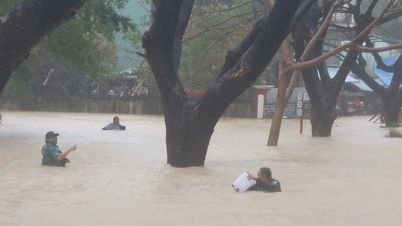



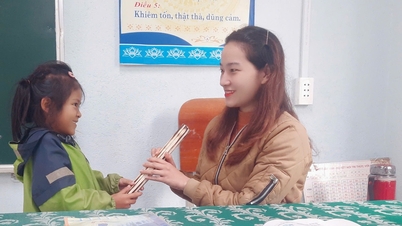

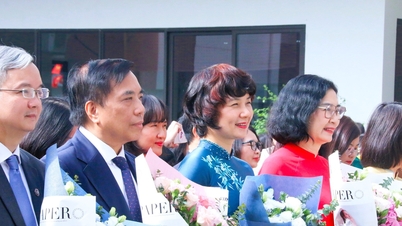




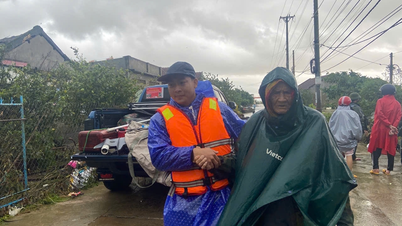











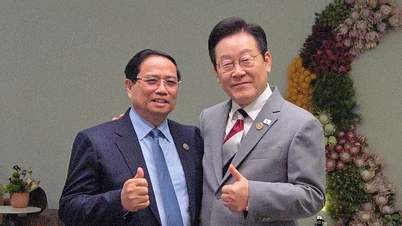

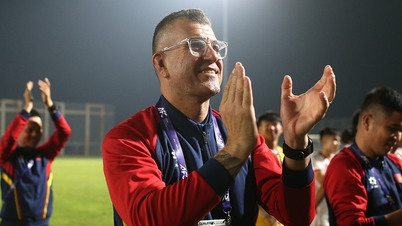






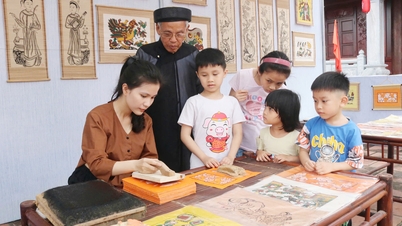









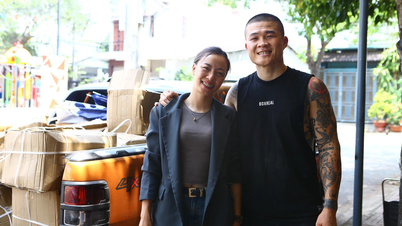



























































Comment (0)